- Home
- Military & Defense
- 78 years ago, the British won a surprise victory over Nazi Germany in the first major naval battle of World War II
78 years ago, the British won a surprise victory over Nazi Germany in the first major naval battle of World War II
When war broke out in September 1939, the Graf Spee was patrolling in the Atlantic. It played a significant role in the German effort to cut Allied shipping lines, sinking eight merchant ships between September and December. The Allies deployed “hunting groups” to track down the German battleship — 23 major ships in total.

The Graf Spee, commanded by Capt. Hans Langsdorff, sank three more ships — bringing its total merchant shipping sunk to roughly a half-million tons — before heading toward shipping lanes near the River Plate in the South Atlantic in early December. Commodore Henry Harwood of Hunting Group G guessed where the German ship was headed, closing in with heavy cruiser HMS Exeter and light cruisers HMS Ajax and HMS Achilles on December 13.
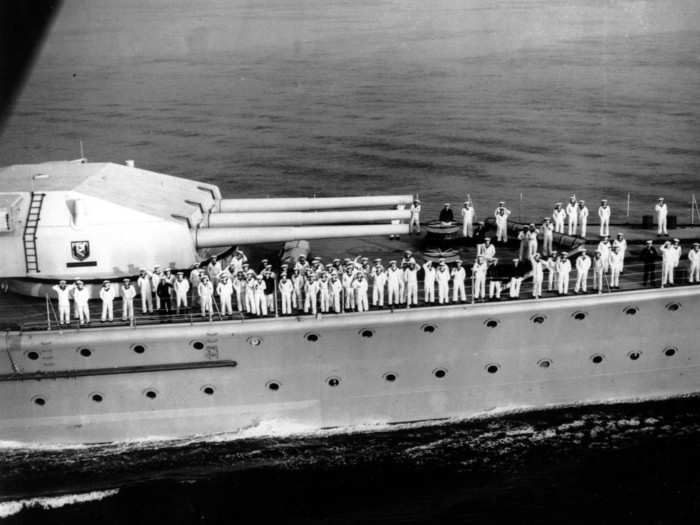
The crew of the Achilles was 60% New Zealanders, whose country would not form its own navy until 1941.
The Royal New Zealand Navy still commemorates the battle as an example of its fortitude.
The German warship engaged its pursuers just after 6 a.m., landing direct hits on the Exeter, knocking out its guns and much of its communications. The Exeter would eventually retreat to the Falkland Islands. The Graf Spee was also able to disable two of the four gun turrets on the Ajax and did damage to the Achilles.
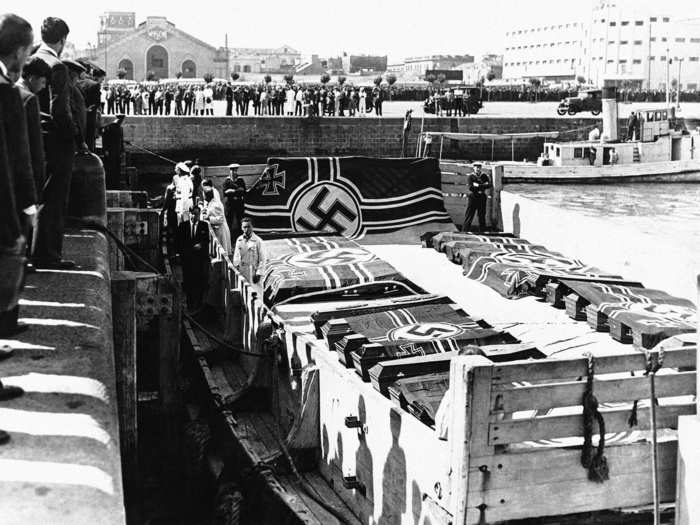
The battle was brief but intense. The Graf Spee engaged for about 20 minutes before breaking off and attempting to evade its British counterparts. The Graf Spee had nearly twice the firepower of its pursuers, but was outnumbered. The number direct hits reported on the German warship ranged from 20 to 60 or 70. Reports of the number of German sailors killed range from 36 to 113.
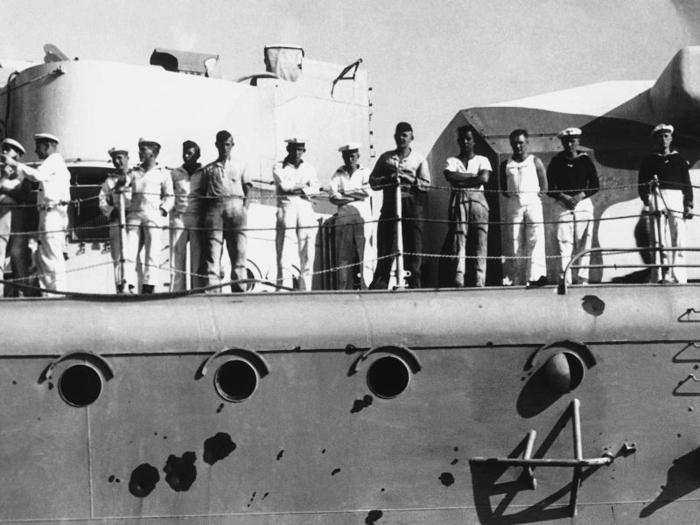
The Exeter, despite its damage, was able to strike the Graf Spee’s fuel systems and galleys. The damage was limited, but it was enough. The German ship retreated to the neutral port of Montevideo in Uruguay. Harwood, the British commodore, suspected his ships had done little damage to the Graf Spee, and he decided to break off the action around 7:30 a.m.
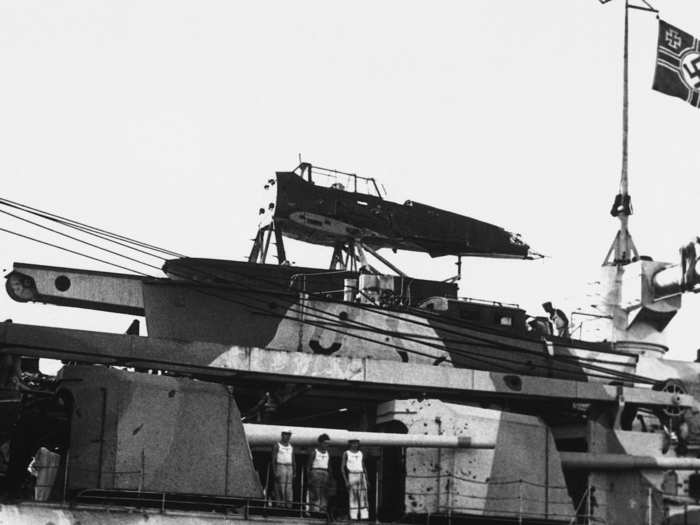
British ships continued to shadow the Graf Spee, which fired on the Ajax in the early afternoon on December 13 and then on the Achilles after sundown that day. The German ship appeared to be sailing into the River Plate. International law said warships could only remain in a neutral port for 24 hours. The Graf Spee requested 14 days to make repairs, but was given only a 72-hour extension by Uruguay. British officials tried to have the ship interned or expelled.
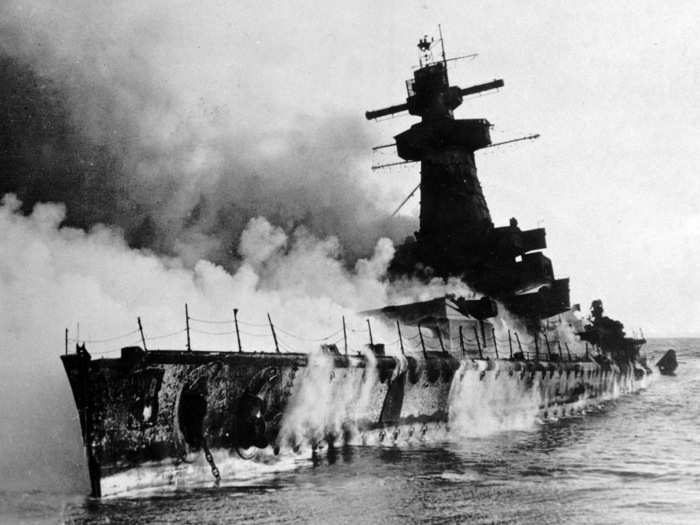
Source: Imperial War Museums
Harwood initially requested the British minister in Montevideo try to delay the Graf Spee from leaving port so his reinforcements could arrive. Other Allied ships hurried to the area while Harwood kept watch outside the harbor. Only one ship, the cruiser HMS Cumberland, made it to the area, joining the Ajax and Achilles on patrol outside Montevideo on late on December 14.
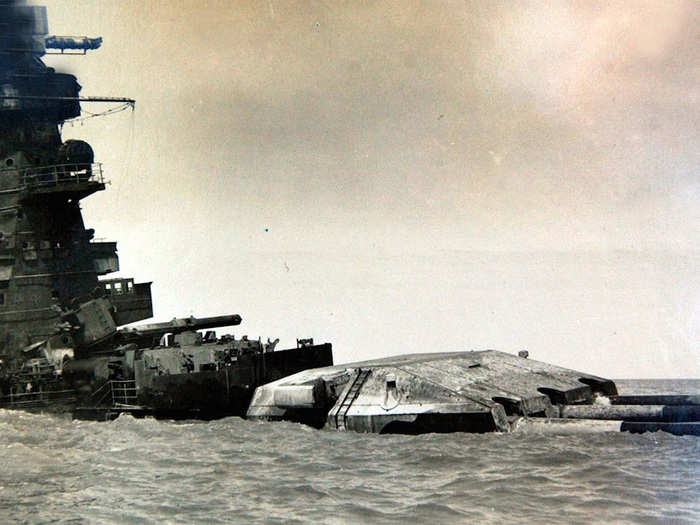
Source: Imperial War Museums
Harwood still thought that the Graf Spee had sustained little damage during the December 13 battle, and he set as his goal the total destruction of the German warship. But the commander of the Graf Spee was convinced that a much more imposing force awaited him in the waters outside Montevideo. Rather than risking another engagement, he scuttled the ship on December 17.
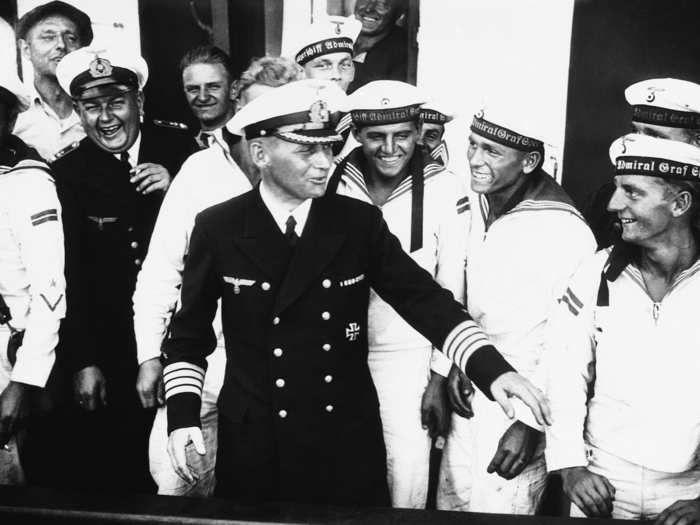
Source: Imperial War Museums
The battled claimed the lives of 72 British sailors, but was a bright spot for the Allies amid Nazi Germany’s earlier successes — especially for the British.
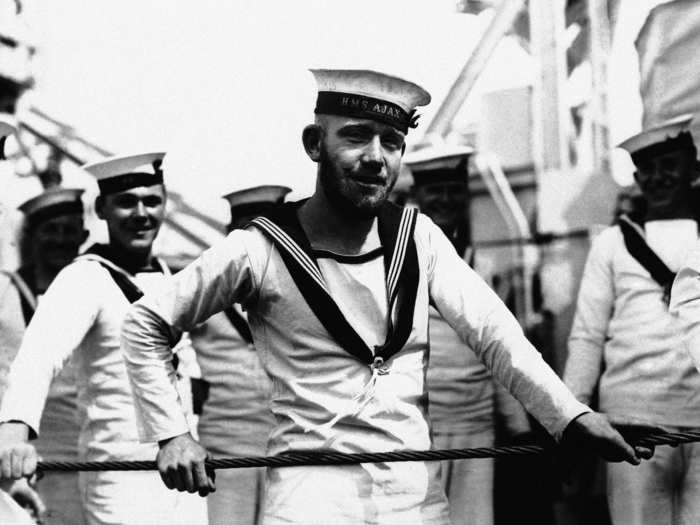
Source: Daily Mail
Winston Churchill heralded the naval victory, saying, “This brilliant sea fight takes its place in our naval annals and in a long, cold, dark winter it warmed the cockles of the British hearts.” The British prime minister predicted, “This great battle will long be told in song and story.”
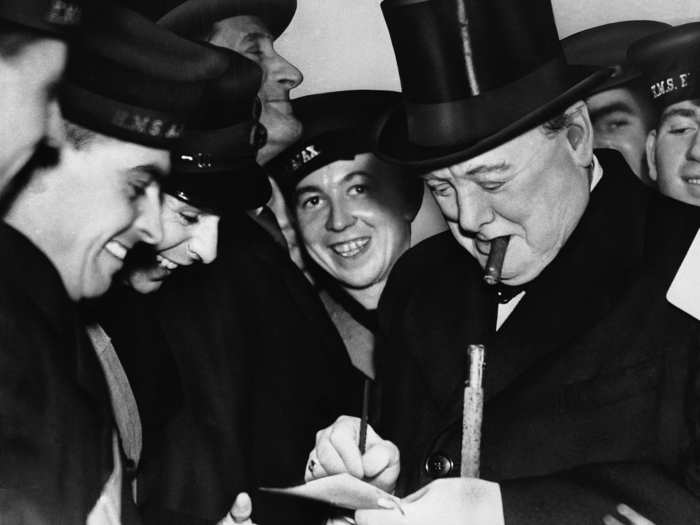
Source: Daily Mail
The German commander faced a much more bleak fate. He left most of the ship’s 350 crew ashore in Montevideo and sailed out of the harbor, where he scuttled the ship. Days later, he committed suicide with a revolver at a Buenos Aires hotel, telling his superiors in a letter that he didn't want is motives to be misconstrued and that the captain's "personal fate cannot be separated from that of his ship." His crew was interned in Uruguay or Argentina during the war, and many stayed after the war.
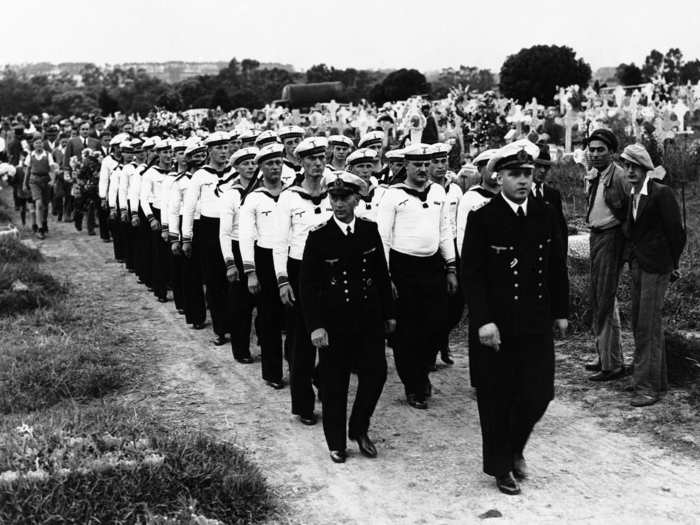
The last surviving member of the Graf Spee's crew, Gustav Friedrich Adolph Quick, died in Montevideo in June 2007. He joined the ship at age 19 and was 89 when he died.
Source: Daily Mail, The New York Times, World War II Today
Salvagers began to recover fragments of the Graf Spee around 2000. The effort ignited controversy in Uruguay, especially the recovery of the vessel's tailpiece: a 9-foot-high eagle sitting atop a swastika, which was covered went it was brought up. The Uruguayan government protested, fearing neo-Nazis would acquire artifacts from the ship at auction. "There are ethical limits on the promotion of Nazi symbols in museums, so who are the potential buyers of these icons if not neo-Nazis?" Miguel Esmoris, director of Uruguay's National Heritage Commission, said at the time.
Alfredo Etchegaray, a public-relations executive, party organizer, and amateur historian who led the recovery effort in 2006, told The New York Times that the Graf Spee was a prized artifact of the war, citing reports that collectors in the US and Asia were willing to pay $15 million or more for pieces of the ship.
"This was the first important Allied victory of World War II, so the Graf Spee is also a valuable trophy for Germany’s enemies," he told The Times.
Source: The New York Times
Popular Right Now
Popular Keywords
Advertisement